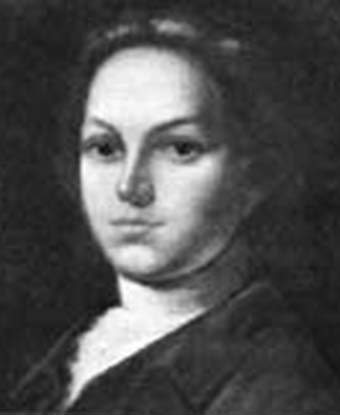Last updated: December 27, 2019
Person
Thomas Nelson, Jr.

Library of Congress
The eldest of five sons, Nelson was born in Yorktown, Virginia in 1738. At the age of fourteen, he sailed to England to begin his formal education. In 1761, after graduating from Hackney School and Cambridge University, he returned to Virginia to help his father manage his plantation and mercantile business. The next year, Nelson married Lucy Grymes; he and his wife had eleven children.
In 1764, Nelson became a justice of the peace for York County and entered the House of Burgesses. He served in the house until May 1774, when Governor Lord Dunmore, angered at its protests over the Boston Port Act, dissolved it. Nelson attended three of the Virginia provincial assemblies, where he worked closely with Patrick Henry. The last assembly elected Nelson to the Continental Congress, at which time he resigned his colonelcy in the Virginia militia.
In Congress, Nelson was outspoken in his desire to sever the bonds with Great Britain. He journeyed to Virginia in the spring of 1776. At a convention held in Williamsburg in May, he introduced and won approval for a resolution recommending national independence, drafted by Edmund Pendleton. Nelson carried it to Philadelphia and presented it to Richard Henry Lee, who redrafted and condensed it into his June 7 resolution. Not long afterward, Nelson's health began to decline. Subsequently, he divided his time between Philadelphia and Virginia, and in the spring of 1777 resigned from Congress.
Back in Virginia, Nelson was awarded the rank of brigadier general in the militia and was elected to the lower house of the legislature. In the spring of 1778, Congress appealed for assistance in the creation of new troops of light cavalry. Nelson, partially at his own expense, raised, outfitted, and trained such a unit. In July, he marched it northward to Philadelphia. The next month, Congress decided it was not needed, and it returned home.
Nelson served in Congress again for a short time in 1779, but poor health forced him to retire once more. Nevertheless, the next year he obtained munitions and supplies for the militia, commanded troops, attended the legislature, and raised money to help subsidize the war. He was particularly effective in soliciting funds from wealthy plantation owners, to whom he pledged to repay the loans personally if the state should fail to do so.
When the British invaded Virginia in 1780-81, civilian control seriously hampered Nelson's effectiveness as a militia commander. Consequently, in the latter year the legislature elected him as Governor and granted him powers approaching those of a military dictator. Although still bothered by bad health, he kept the government intact and strengthened defenses. In September-October 1781, while taking part in the Siege of Yorktown, according to family tradition, he told General Washington to shell his own mansion when he learned it was a British headquarters. Soon after the victory at Yorktown, overwhelmed by the burdens of office and still in poor physical condition, he resigned the governorship.
After his resignation, Nelson partially retired to Offley Hoo, a modest estate in Hanover County that his father had left him. In financial distress from his wartime sacrifices, Nelson lacked money to renovate his war-damaged Yorktown home, where he had lived since 1767. Except for occasional tours in the legislature and visits to Yorktown, he devoted the rest of his life to his business affairs. He died at Offley Hoo in 1789 at the age of fifty.
